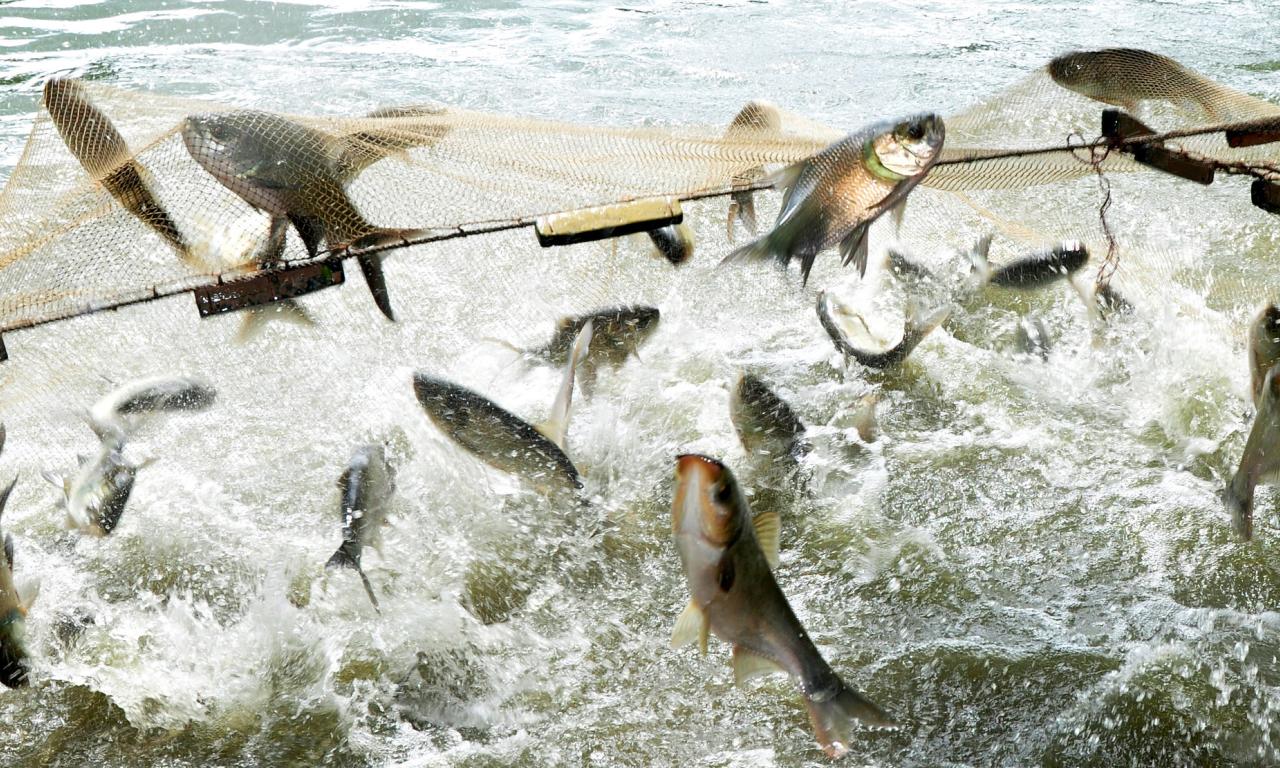
- FISH provided compelling new evidence on the critical role of fish and other aquatic foods in improving food and nutrition security, reducing poverty and enhancing environmental sustainability through its five years of research and innovations.
- Over 100 innovations were reported between 2017 and 2021, underpinned by over 700 peer-reviewed publications, briefs, manuals, reports and other documents.
- A total of 310 peer-reviewed ISI journal articles were published during FISH, of which around 70 percent were open access and 16 with Altmetric Attention Scores greater than 100.
The CGIAR Research Program on Fisheries Agri-Food Systems (FISH) came to a successful conclusion after providing five years of evidence to improve food security, fight poverty, enhance sustainability, increase resilience to climate change and develop a new research and innovation base for fish agri-food systems.
At a three-hour virtual event, FISH scientists and partners shared major findings and walked down memory lane filled with many momentous occasions throughout the five-year journey.
Identifying innovative solutions through broad partnerships
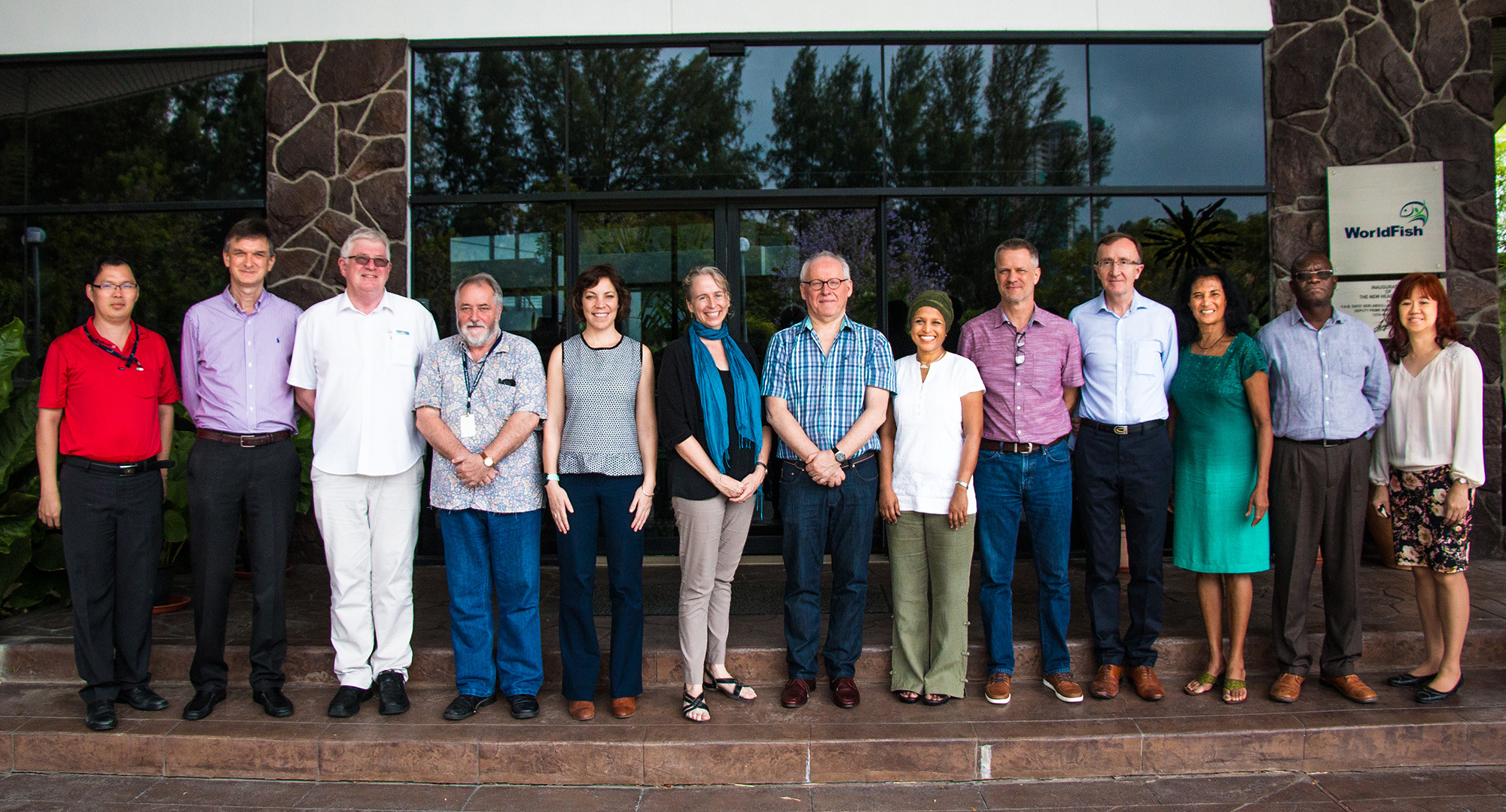
FISH was launched in 2017 to find innovative solutions to modern food and nutrition systems' challenges and contribute towards more sustainable and resilient fish agri-food systems.
Led by WorldFish, FISH developed and adopted a theory of change and an integrated approach that addressed challenges for development and management of sustainable aquaculture and small-scale fisheries in inland and coastal waters, with the cross-cutting themes of nutrition, gender, youth, capacity development,climate change and, later on, COVID19.
Partners of the research program include the International Water Management Institute (IWMI), the Aquaculture and Fisheries Group at Wageningen University and Research (WUR), the Australian Research Council Centre of Excellence in Coral Reef Studies at James Cook University (JCU) and the Natural Resources Institute at University of Greenwich (NRI).
“In five years of oversight of the FISH CRP, the Independent Steering Committee members have been hugely impressed with the progressive delivery of outstanding research advances and impacts achieved by the program. Of most critical importance, the dedication of all of the FISH participants, coupled with the support of multiple donors and WorldFish as the host organization, has helped improve income, empowerment and nutrition for hundreds of thousands of individuals in low-income countries," said Nigel Preston, chair of the FISH Independent Steering Committee (ISC).
FISH’s research work was undertaken with various partners and investment from a host of CGIAR and bilateral projects across 20 countries in Africa, Asia and the Pacific, with a primary focus on seven countries -- Egypt, Nigeria, Zambia, Bangladesh, Cambodia, Myanmar and the Solomon Islands. New knowledge and innovations were shared within and beyond those countries through extensive networks and investment in the ability to influence policy, stimulate investment and create wider impact.
Innovating in seven key areas
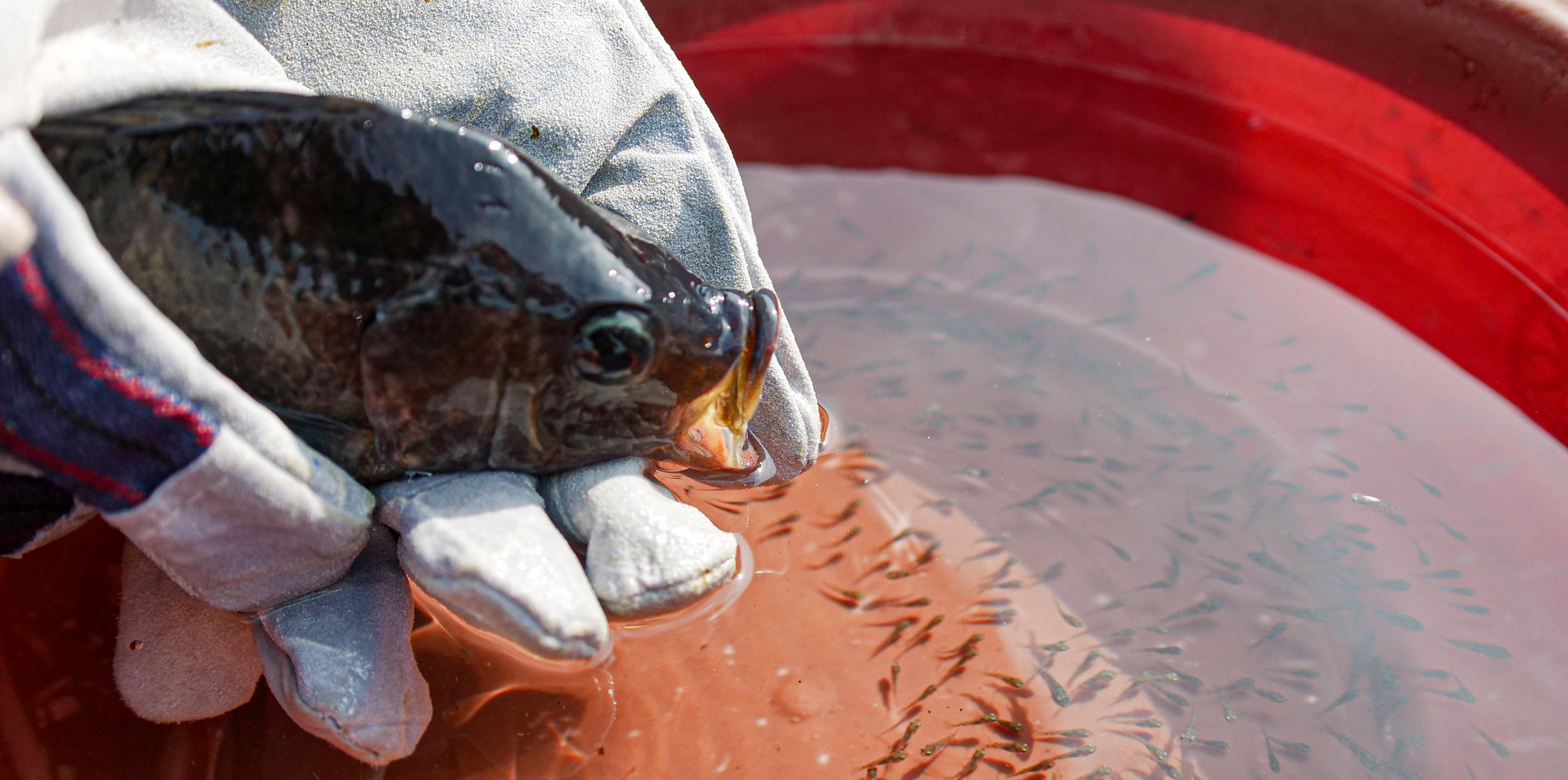
FISH research and innovation can be summarized in the following seven key areas; gender-transformativeapproaches to tackle the root causes of gender inequality, sustainable growth of aquaculture through better management practices, faster growing and more resilient tilapia and carp, nutrition-sensitive approaches to fish agri-food systems transformation, digital tools for decision-making and investments in fish agri-foodsystems, reintegration of fish into multifunctional rice landscapes and next-generation co-management approaches.
The two flagship leaders of FISH were invited to reflect on the challenges and successes over the past five years, working on the wide range of research during the recently held FISH Completion Event.
“Clarity of vision and focus on the outcome has been key to success in the genetics programs – this is particularly important for addressing the major questions that require more time than usual project cycles and which ultimately have the greater impact,” shared John Benzie, the flagship leader on sustainable aquaculture.
Philippa Cohen, the flagship leader for small-scale fisheries, shared the importance of teamwork, sound leadership and commitment across the whole spectrum -- from researchers, donors and partners -- which led to the successful harvests from the five years of research work.
“It's completely thanks to an amazing team of committed researchers, supporters and partners that we can now stand back and see some successes - from challenges to global structures and norms that have held back Sustainable Development Goals progress, to the introduction of new field-born and tested innovations into the pathways toward more sustainable and equitable futures,” said Cohen.
“It's been an absolute privilege to work with diverse young scholars who have made an incredible contribution to FISH research and its impacts. In new ways across gender, governance, nutrition, food systems and small-scale fisheries, they have challenged any 'locked in' thinking and enable program adjustment in response,” added Cohen.
FISH researchers reported more than 100 innovations between 2017 and 2021, supported by more than 700 peer-reviewed publications, briefs, manuals, reports and other documents that became unique and vital insights into fish agri-food systems tailored to a diverse user group. A total of 310 peer-reviewed articles were published in ISI journals, about 70 percent of which were open access and 16 with Altmetric Attention Scores over 100. The highest Altmetric score of 820 was from a Nature article entitled Harnessing global fisheries to tackle micronutrient deficiencies, which quantifies the potential of fisheries to combat malnutrition.
“I believe WorldFish truly had a disproportionate impact with its work under the cross-cutting CGIAR Research Programme for Fish Agri-food Systems -- ranging from the development of faster-growing tilapia and carp, identification of traits that confer greater climate resilience in tilapia, improved health and feed management, including rapid diagnostics to reduce disease risks, a deeper understanding of how to support more inclusive, gender-sensitive and women-targeted business in the aquatic foods sector, more inclusive and integrated management of small scale fisheries,” said Cristina Rumbaitis del Rio, a member of the FISH ISC.
“This work has the critical evidence base for the role of aquatic foods in delivering health, nutrition, inclusion and sustainability outcomes globally, setting the foundation for scaling up innovations identified through the research program to solve contemporary food, nutrition and sustainability challenges affecting billions of people worldwide,” she added.
Influencing policy at the highest levels
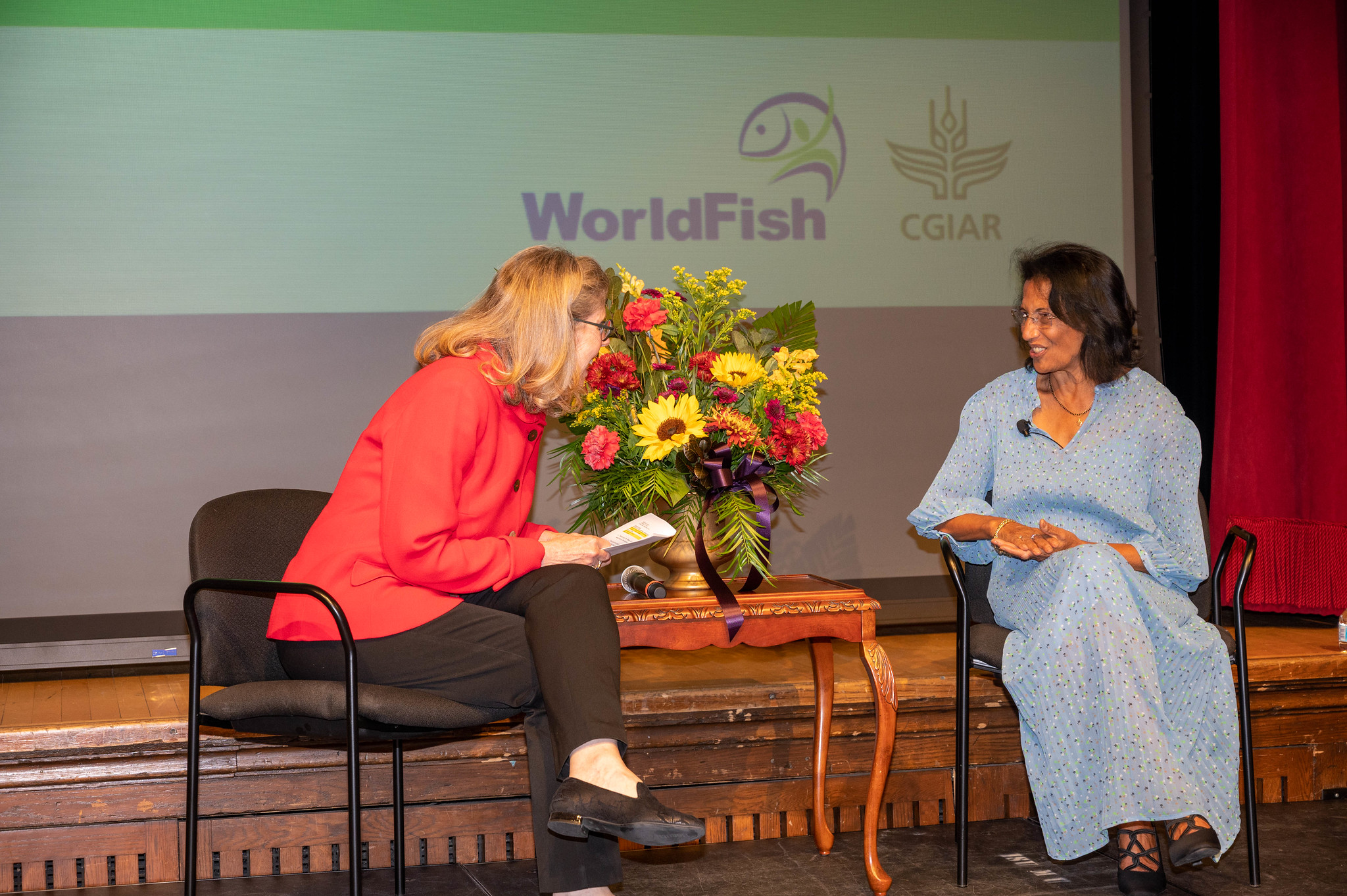
Compelling new evidence has been presented of the vital role fish and other aquatic foods play in nutritious diets and the diverse values that fish agri-food systems bring to sustainable livelihoods and in responding to the global climate crisis.
“The research and innovations from FISH will have a long-lasting impact on the millions of people who depend on fish in the developing world. The body of evidence produced elevates the importance of aquatic foods even higher in their ability to offer triple wins for nature, people and planet, and will provide WorldFish with a vital springboard to achieving our 2030 Research and Innovation Strategy in the years to come,” said WorldFish Director General Gareth Johnstone.
“I applaud the achievements of the FISH team and thank them for their industry during the five years the FISH research program was in operation. These outcomes would not have been possible without the support of our generous donors and valuable partners, and I humbly extend my gratitude to them,” continued Johnstone, who is also senior director of aquatic food systems at CGIAR.
FISH has been the torchbearer to highlight the vital role of aquatic foods in securing sustainable, healthy and resilient food systems of the future. At the same time, FISH helped small-scale fishers, fish farmers and supply chain actors position their well-being and the goods and services they provide as central elements forsustainable and inclusive food system transformation and preparing them to bounce back stronger post-COVID-19.
FISH researchers and partners also contributed to an influential UN Nutrition Discussion Paper and the UNFood System Summit and related policy processes that have resulted in increased recognition at the highest levels of fish and aquatic foods as well as small-scale actors who manage fish agri-food systems.
“FISH has also had a profound impact on raising global awareness of the critical nutritional and income roles of fish and other aquatic foods, laying the foundation for future transformative research to elevate the role of aquatic foods in reshaping global food systems for human and planetary health,” said Preston, who is also a former director general of WorldFish.
Providing a solid foundation for the future
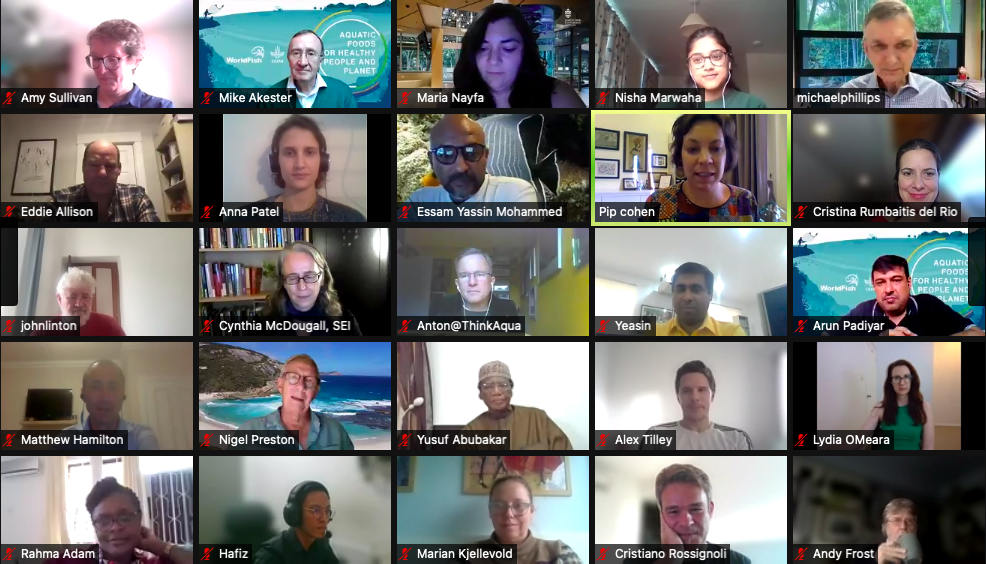
Several areas of innovation have also been identified that show significant potential for further development and application beyond FISH's timeframe, such as GIFT's emerging genetic blueprint, which promises to perform better in changing climates, including tolerance of low dissolved oxygen conditions, resistance to tilapia lake virus and improved feed efficiency, FishNutrients -- a predictive model database of the nutrient composition of more than 5000 fish species integrated into FishBase, comprehensive methodological and practice innovations related to gender and inclusion, including gender-transformative approaches.
“It has been a great privilege for me to lead the FISH research program, and I take the opportunity here to thank all research leaders and their teams, our partners and donors for contributing to a successful outcome,” said FISH Director Michael Phillips.
“I believe this 5-year collaborative program has achieved much, but importantly has laid a vital foundation of knowledge and innovations that hold great promise for the future of fish and aquatic foods and their contribution to a sustainable and healthy food system,” shared Phillips, who is also the chair of the FISH Management Committee.
A summary of FISH’s innovations to improve food and nutrition security, reduce poverty, enhancesustainability, strengthen resilience to climate change and develop a new and solid research and innovations foundation for fish agri-food systems is available in its synthesis report. The FISH website will be maintained as a virtual resource center for future research on fish agri-food systems.
